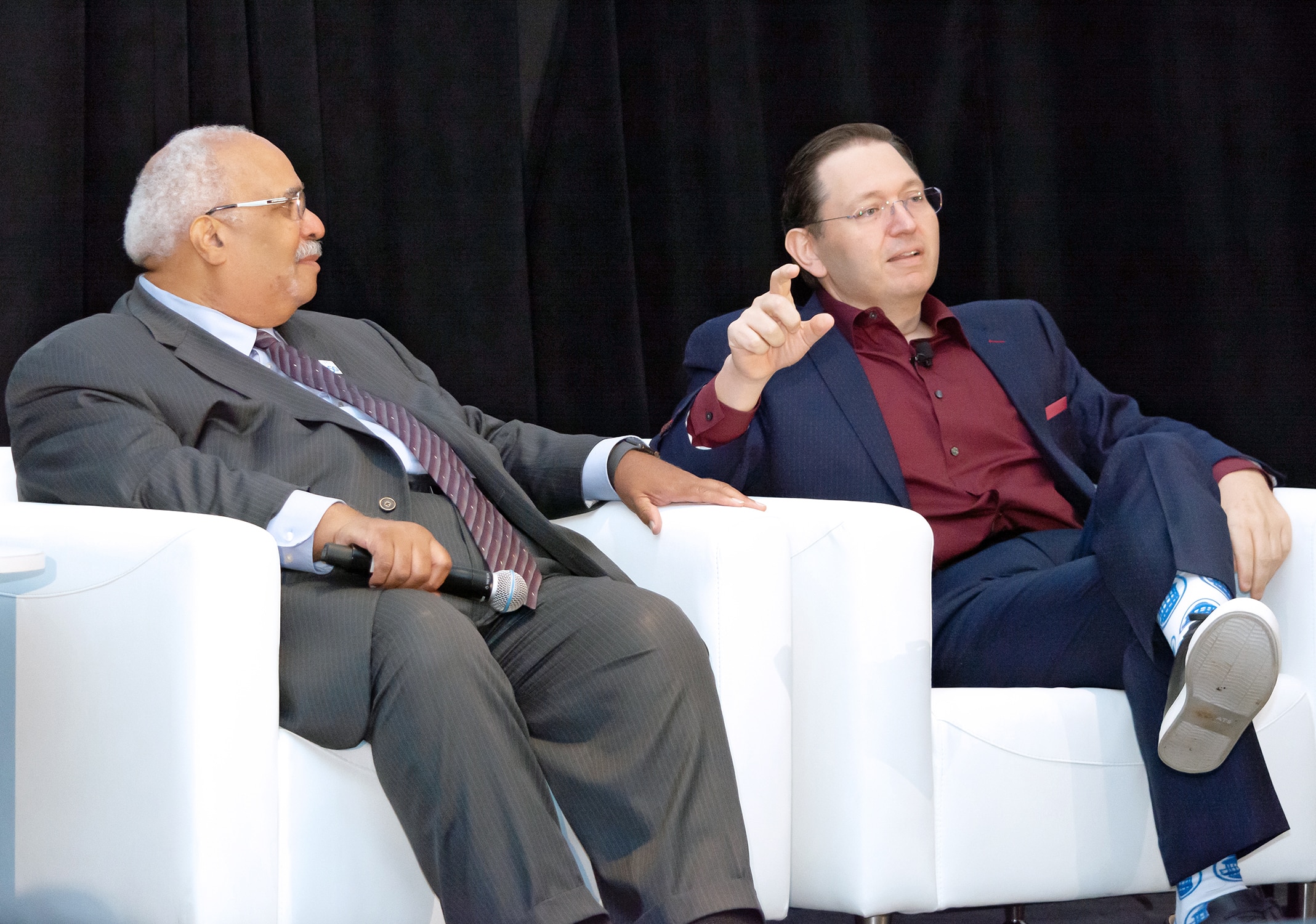
APHA Executive Director Georges C. Benjamin and de Beaumont Foundation CEO Brian C. Castrucci shared the stage at a fireside chat on the politics of creating the next public health system. (Photo by Gayatri Malhotra, courtesy APHA)
This week, public health practitioners from across the country gathered in Washington, DC, for the American Public Health Association’s (APHA) Policy Action Institute, an annual event focused on the important role of policy and advocacy in shaping the nation’s health. For many of the 100+ in-person attendees – myself included! – it was the first in-person conference we’d been to since the start of the COVID-19 pandemic, and a wonderful chance to reconnect with the field and exercise those rusty small-talk muscles.
Indeed, our continuing recovery from the pandemic was a recurring theme throughout the event, both as a specific health threat and as a world event that has exposed the broader vulnerabilities of our health system. While vaccines, diagnostics, and treatments developed in record time have made a huge difference in our ability to address the pandemic, unequal access to those innovations remains a challenge and hampers our collective response. As Ashish Jha, MD, MPH, White House COVID-19 response coordinator, noted in the opening session, “we cannot move forward in a pandemic where the uninsured and underinsured don’t have access to these things.”
The pandemic also brought to light the need for quality public health communication and accurate, reliable health information – an area that is especially critical in an atmosphere of constantly evolving science and guidance. “Every reporter had to become a public health reporter during the pandemic,” said Rachel Cohen, senior political reporter at Vox. That backdrop of uncertainty has also contributed to the growing issue of misinformation and disinformation, and has accelerated trends toward distrust in public institutions, including health leaders and departments.
Taken together, these themes served as an important reminder that public health does not – and cannot – operate in a silo. We live in a world that is complicated and messy and heterogeneous, and when working to improve the health of communities, the specific needs, values, and lived experiences of those communities must be at the center.
The Politics of Creating the Next Public Health System
Following panels on addressing mis- and disinformation campaigns and envisioning the perfect public health system for all, de Beaumont Foundation President and CEO Brian Castrucci, DrPH, joined APHA Executive Director Georges C. Benjamin, MD, for a fireside chat on the real-world politics of creating the next public health system.
As a field, we need to look both inward and outward, and it starts with defining who we are and what we do – and taking the initiative to tell our own story simply, clearly, and consistently. That requires finding consensus among ourselves on what that unified public health story is and where our focus should be, always keeping the practical in mind. “When making the case for local public health, we don’t have the luxury of being idealistic,” said Dr. Castrucci. “Medicare for all is lovely, but it doesn’t stop people from getting sick.”
Looking beyond ourselves, we need to work with other industries on areas of overlapping interest to achieve our goals. Collaboration is hard and it doesn’t always come naturally, Dr. Benjamin acknowledged, but it’s essential to driving the policies and cross-sector consensus that result in real, long-lasting systemic change.
The APHA Policy Action Institute took place from June 14-15, 2022. Attendees received a copy of Public Health Under Siege, published by de Beaumont and APHA Press. For more information about the conference’s highlights, follow #SpeakforHealth on Twitter and explore APHA’s FlickR page.




